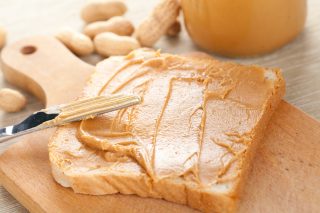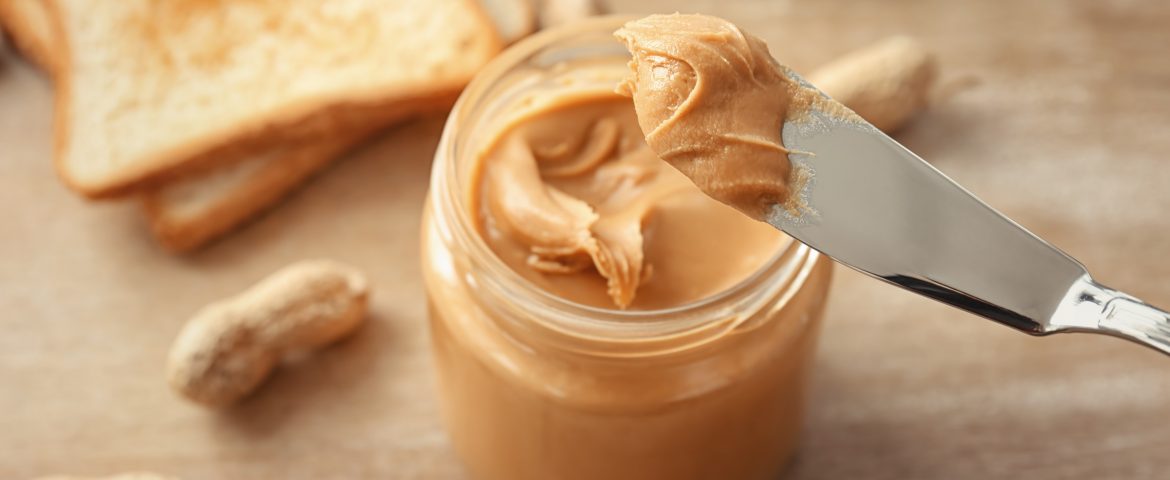By: Sophia Speroff, MPH, RD
Plant based nut butters have grown in popularity with the rise of plant-based eating. This trend is leading to a countless varieties including soy, almond, pistachio, cashew, and sesame butter to name a few. These are exceptionally useful sources of protein, fiber, essential fatty acids, and other nutrients.
Peanut butter has health benefits.
Sure, peanut butter can sometimes get an unhealthy reputation. At the core of its nuttiness, though, lies many health benefits.
A common benefit is protein. Just two tablespoons of peanut butter contain eight grams of protein, which aids in the process of repairing and building muscles. Because of the protein presence, peanut butter is often considered an ideal post-workout snack.
Evidence suggests that nut consumption, including peanuts, protects against not only coronary heart disease, but also against diabetes and other metabolic syndrome diseases. Nuts are high in unsaturated fats, both polyunsaturated and monounsaturated, and other nutrients that may improve glucose. Notably, nut and seed butters contain generous amounts of phytochemicals that may be protective against colon, prostate, and breast cancer. And, contrary to widespread belief, studies suggest that regular nut consumption is unlikely to contribute to obesity and may even help with weight loss when used as a replacement for consumption of refined grains or red or processed meats.
Do be cautious, though, of certain ingredients in peanut butter. The rule of thumb for finding the healthiest type of peanut butter is looking for those that have the highest peanut content, hinting at more natural and organic production without additions of salt, sweeteners, or preservatives. The fewer additional ingredients, the healthier. Beware of varieties that contain hydrogenated oil, for this contains trans fats, which are added to keep the oil from separating out during storage. However, oil separation is normal and requires a quick stir before using. To prevent the nut butter oil from separating during storage, the jar can be stored upside down in your pantry.

Nutty alternatives.
Peanut butter is not the only nut-based, spreadable delicacy out there. There are many alternatives that can compete with the classic peanut butter, both in taste and nutritional value.
Almond Butter.
One of the most nutrient-dense alternatives is almond butter. Given the nuts from which it is produced, there is a healthy dose of fats, proteins, and slow-digesting carbs. Almond butter contains minerals important for maintaining strong bones, and has higher amounts of fiber, calcium, magnesium, manganese, and phosphorus than peanut butter. In just 2 tablespoons, it supplies about 50% of your daily vitamin E requirement. Vitamin E is an essential antioxidant benefitting your eyes and heart. Additionally, almond butter is highest in fiber and lowest in saturated fat.
Cashew Butter.
Another alternative is cashew butter, a smooth, creamy, and slightly lower in fat option than other nut butters. While peanut and almond butter contain more protein and calcium, it has been discovered that cashew butter has a higher presence of healthier, monounsaturated fatty acids, essential amino acids, and magnesium. As a further boast, this nut is beneficial for blood pressure and cholesterol control, bone health and the immune system.
Whether it be peanuts, almond, cashew, or any type of nut butter, make sure to add a little nuttiness to your daily meals or recipes for an extra healthful punch.
About the Author: Sophia Speroff, MPH, RD is a Registered Dietitian of 10 years with her master’s in public health. Sophia has a tremendous background in both community and patient care and population health management. Her background also includes diabetes and chronic disease prevention and management, clinical dietetics, and wellbeing engagement in underserved communities. She has a passion for staying active, training for triathlons and half marathons and in her free time, Sophia enjoys hiking, folk dancing, and gardening.


